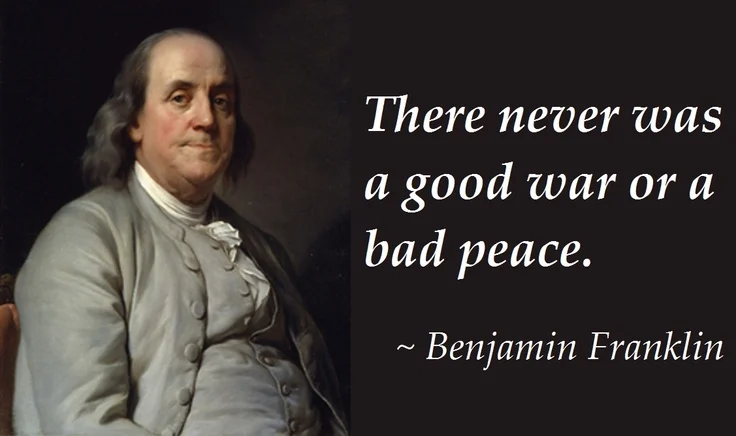On September 3rd, 1783, three representatives of the United States, Benjamin Franklin, John Jay and John Adams, congregated with the representatives of the British Crown to sign what was later known as the Treaty of Paris.
On this day, September 11th, 1783, after the signing of the Treaty of Paris, Benjamin Franklin declared that there was never a good war nor a bad peace. This was to signify that war is never good for prosperity and peace, no matter who or what it involved.
Fun Facts:
-
Five Americans had been chosen for this expedition; however, only 3 made the trip because of uncontrollable circumstances.
-
Although Benjamin Franklin was involved in brokering the peace, he did not entirely believe in the Treaty.
-
The Treaty of Paris incorporated 10 key points, which mostly involved territorial terms that controlled the expanse of both the new Americas and the Great Britain kingdom.
-
The British colonies (New Americas) and Great Britain shared common interests in the British Canadian coastline and the Mississippi river.
-
The quote "There never was a good war or bad peace" signifies that wars bring losses, and peace is presumably good irrespective of the parties involved.
-
Even after the Treaty of Paris, some colonies continued fighting.
-
In some instances, the British refused to release some of the forts, which were in the former northwest territory, while some Americans kept stealing from citizens who were loyal to the British Crown during the war.

